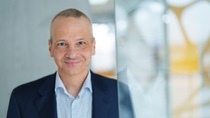포커스

바스프의 새로운 전략은 포트폴리오 관리에 명확한 초점을 맞춥니다. 앞으로 우리는 화학, 재료, 산업 솔루션 및 영양 및 관리 부문으로 구성된 핵심 사업과 환경 촉매 및 금속 솔루션, 배터리 재료, 코팅 및 농업 솔루션과 같은 산업별 독립 사업을 차별화할 것입니다. 우리는 화학 중심을 강화하고 수익성 있게 성장시키며 독립 실행형의 가치를 실현하기 위해 다양한 가치 창출 수단을 적용할 것입니다. 우리 사업의 명확한 포트폴리오 역할을 기반으로 한 자본 배분에 대한 새로운 접근 방식은 자본 규율과 현금 창출을 향상시킬 것입니다. 중국, 인도 및 아세안(ASEAN)에서 핵심 사업의 입지를 강화하는 것은 우리의 미래 성공에 기여할 것입니다.






